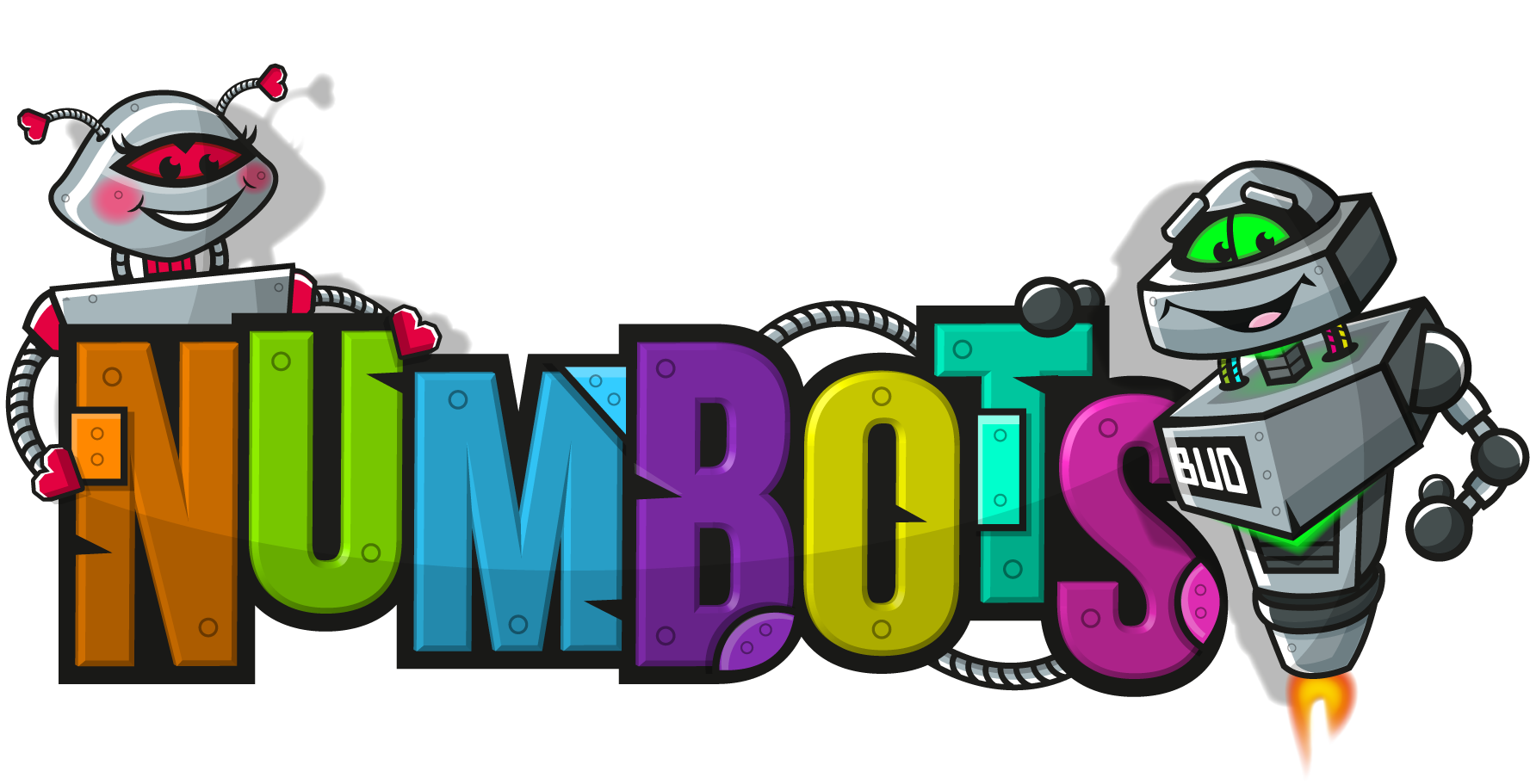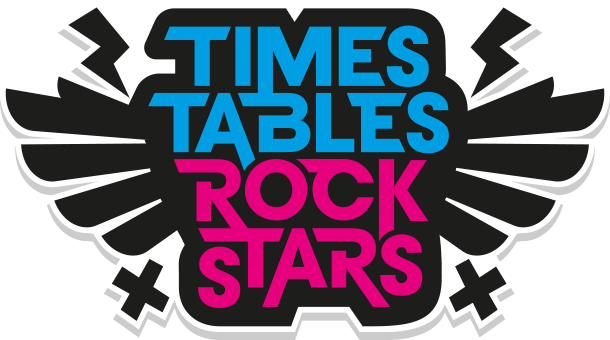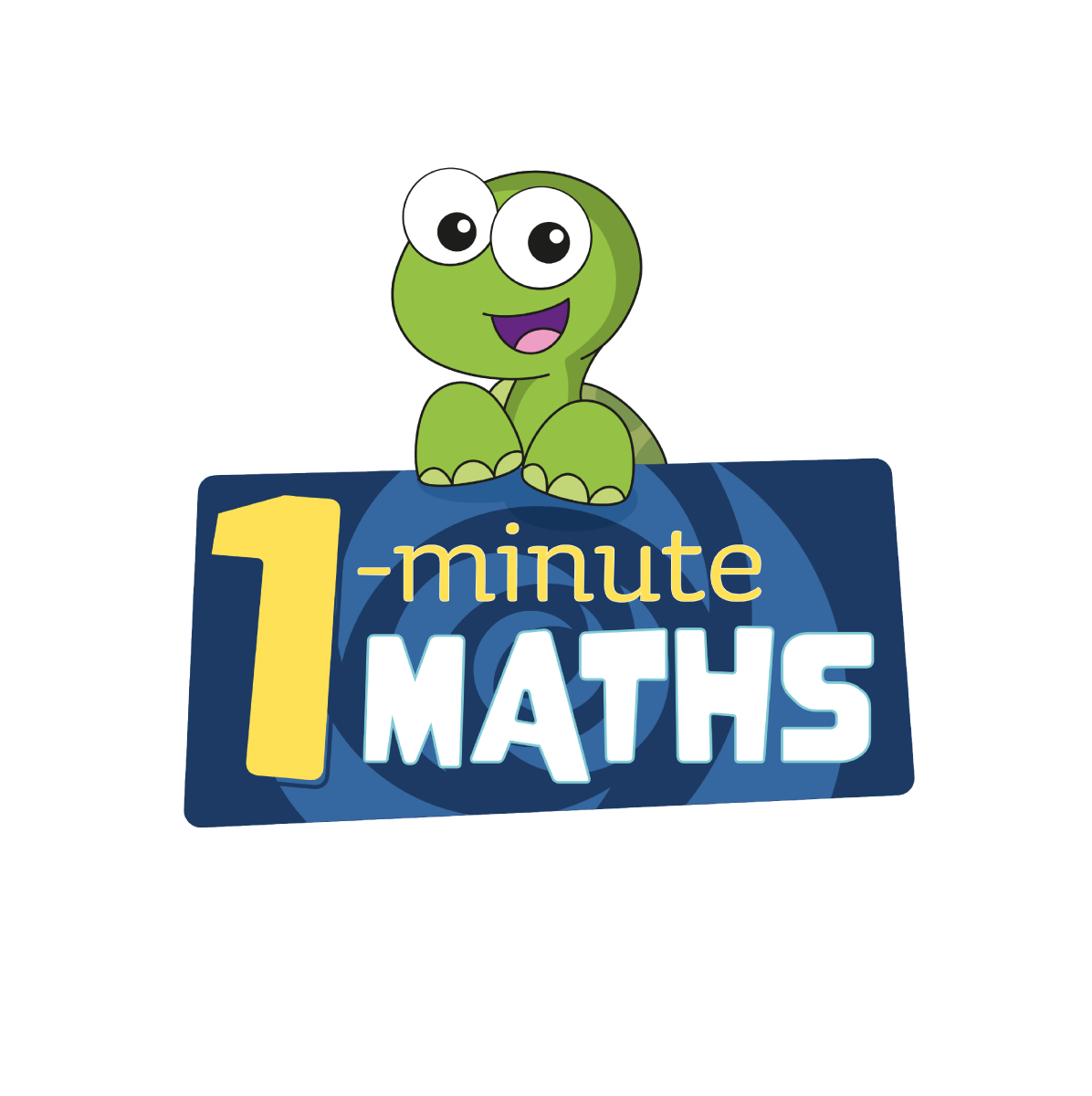Maths
Maths at Meadows First School
Our Curriculum Intent:

We offer the children at Meadows a balanced mathematics curriculum based on the National Curriculum and our very own bespoke Meadows Curriculum (Unique child, Positive relationships, Key knowledge and skills, Love of Learning, Global Citizens) in order to develop a range of mathematical skills for our children.
Our aim for all pupils

Our intent is to embed a deep understanding of maths by employing a concrete, pictorial, abstract approach and a quick recall of number facts.
Implementing our Maths Curriculum:
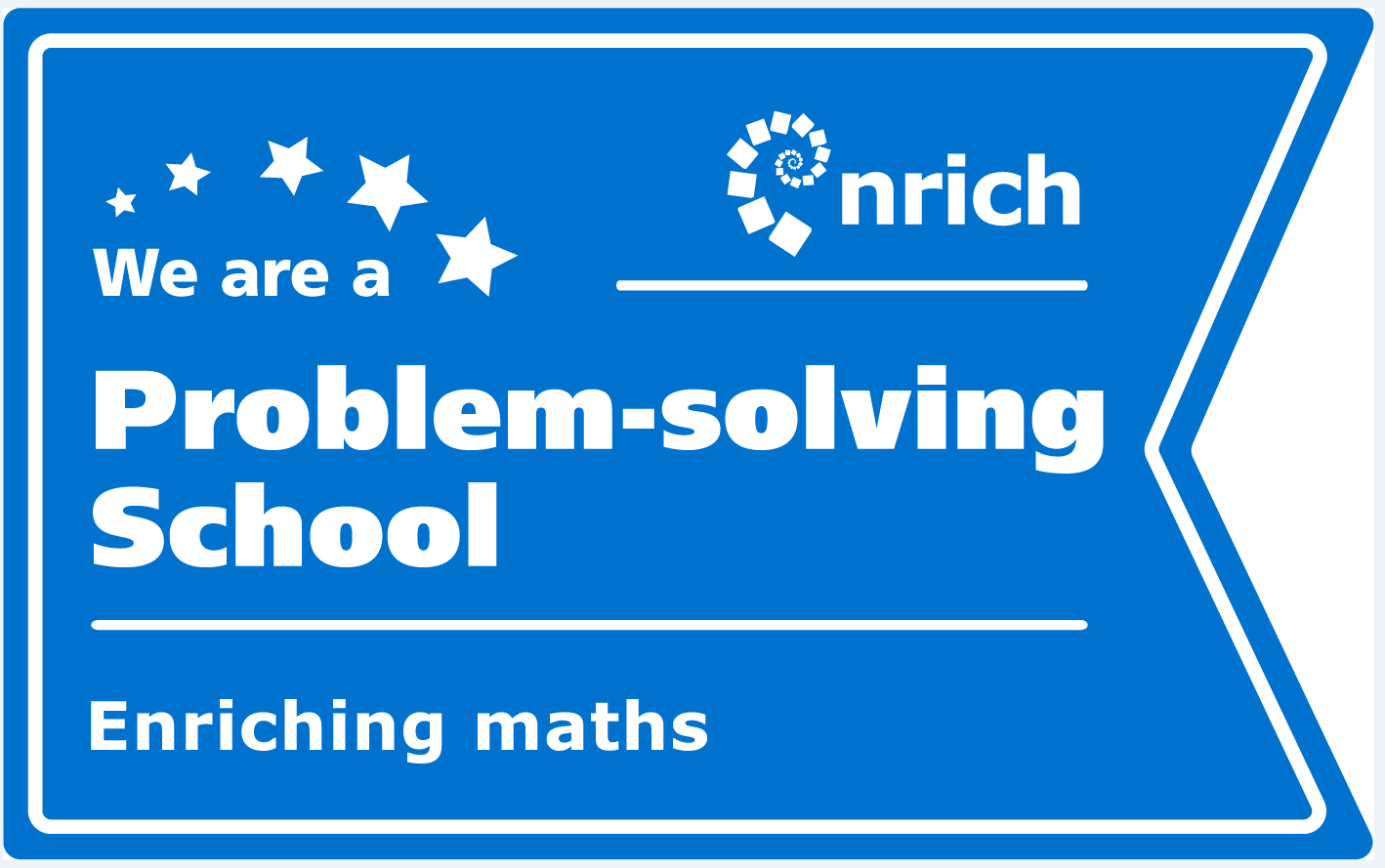 Each lesson centres around one of our 'small steps' based on the NC statements and the White Rose Hub scheme of learning which has been adapted to suit our school context.
Each lesson centres around one of our 'small steps' based on the NC statements and the White Rose Hub scheme of learning which has been adapted to suit our school context.
Maths Year Group Overviews:
Lesson Design - How are maths lessons structured?
KIRFS
Number facts are practised and revisited regularly during the maths lesson and in our KIRF sessions. To support pupils retention of these facts, we use, in KS1, Numbots regularly to ensure key addition and subtraction facts are memorised. Children continue to use Numbots in Key stage 2 if needed. Children also use Timetable Rockstars to rehearse multiplication and division facts. During our KIRF sessions, children practise and consolidate key maths facts. KIRFs are designed to support the development of mental maths skills that underpin much of the maths work in our school. They are particularly useful when calculating, adding, subtracting, multiplying or dividing. They contain number facts such as number bonds and times tables that need constant practise and rehearsal, so children can recall them quickly and accurately.
The Multiplication Check
The Year 4 Times Tables Test, known by the government and schools as the Year 4 Multiplication Tables Check (MTC), is an annual check to see if Year 4 pupils in England and Wales have a good level of times tables knowledge. Primary-school children are expected to know all their times tables up to 12x12. Under the current National Curriculum, children are supposed to know their times tables by the end of Year 4.
Why has the test been put in place?
The DfE says that the check is part of a new focus on mastering numeracy, giving children the skills and knowledge they need for secondary school and beyond. The purpose of the MTC is to determine whether Y4 pupils can recall their multiplication tables fluently (being able to answer times tables questions accurately and quickly, without having to work out the answers).
Our Results
|
|
Full marks 25/25 |
|
% of Year 4 pupils at Meadows scoring full marks in June 2024 |
82% |
|
National Score (2023) |
29% |
FLASHACKS
All l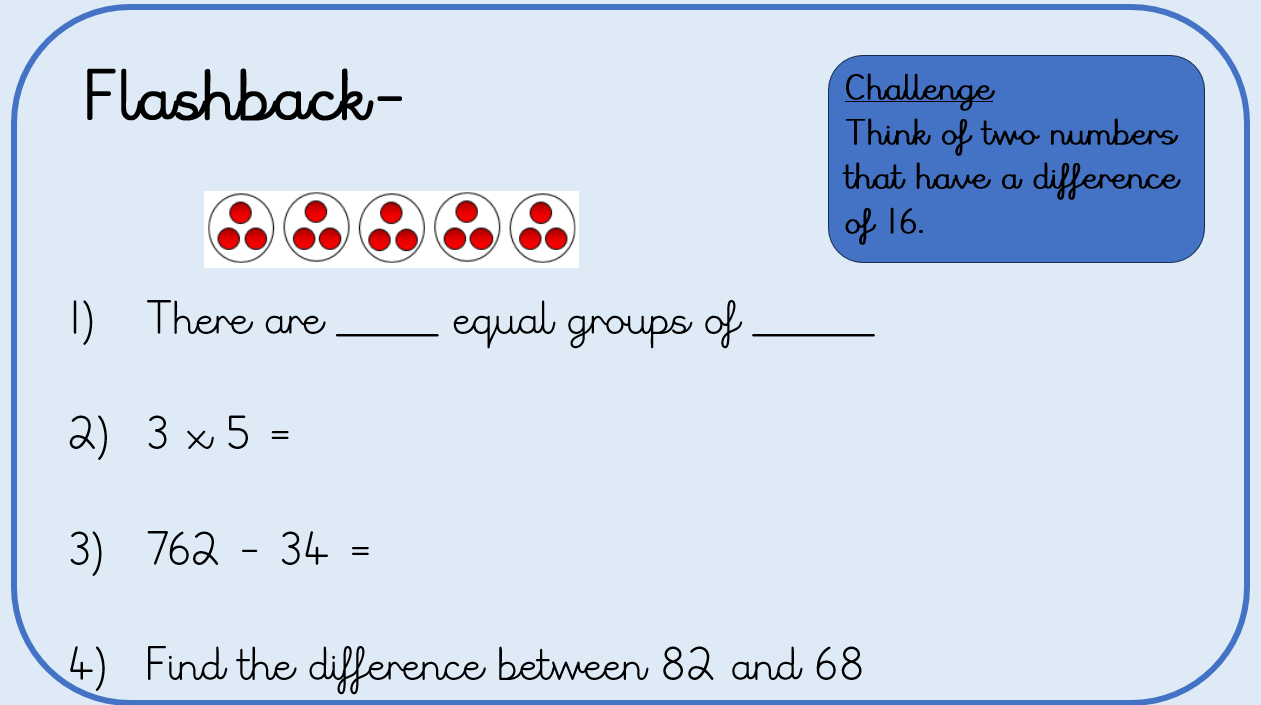 essons will include an opportunity to revisit prior learning and to develop fluency. In most cases, this will involve the use of Flashback 4 which uses the principles of spaced learning. The first question is likely to be what children did in the previous lesson. The next question is something they did last week, to keep that ticking over. The third and fourth questions are related to concepts they studied last month, or maybe much earlier in the year (or even last year).
essons will include an opportunity to revisit prior learning and to develop fluency. In most cases, this will involve the use of Flashback 4 which uses the principles of spaced learning. The first question is likely to be what children did in the previous lesson. The next question is something they did last week, to keep that ticking over. The third and fourth questions are related to concepts they studied last month, or maybe much earlier in the year (or even last year).
Interventions
T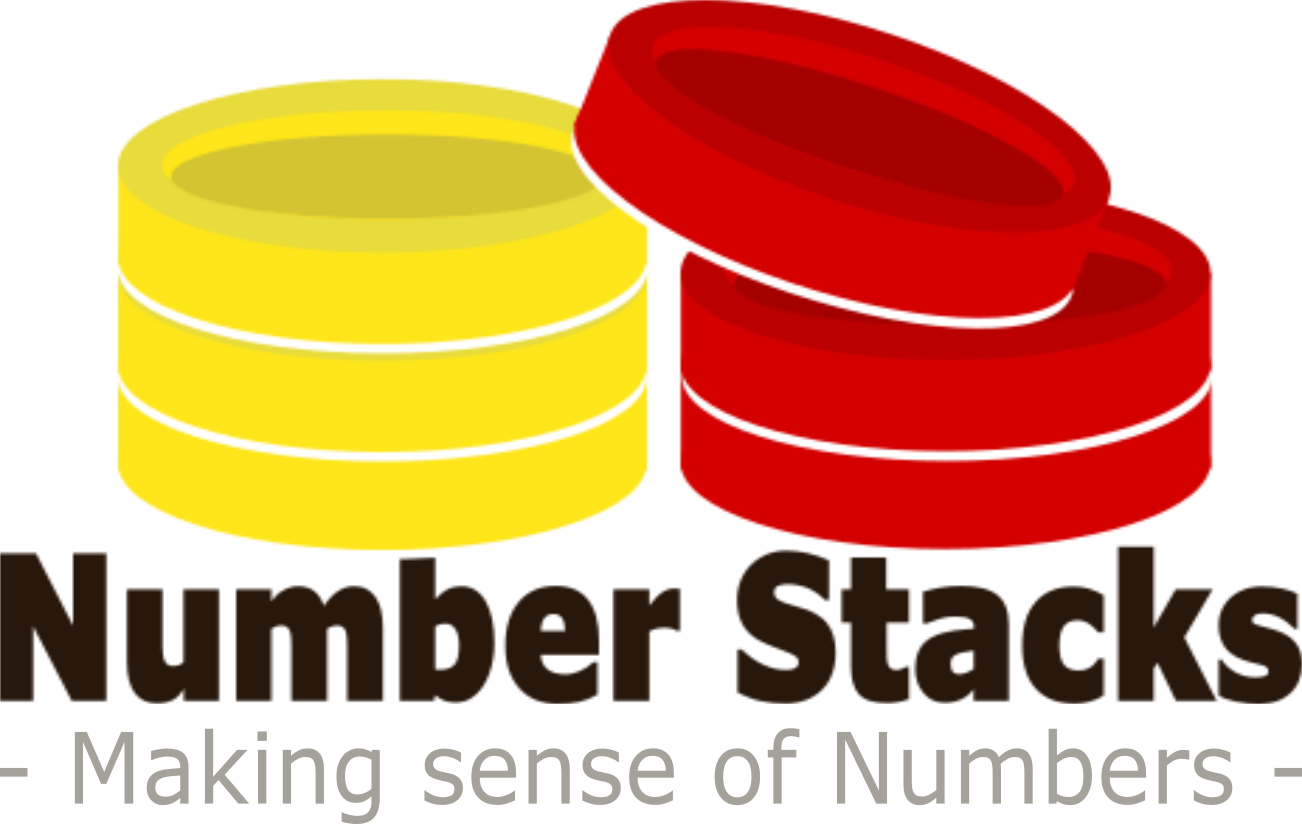 eachers identify during lessons pupils who may need swift same day or next day interventions before the next maths lesson. This ensures children keep up with the pace of the curriculum. Number Stacks is also used as an intervention program to close gaps and ensure children make good progress. Dynamo maths is also used as online intervention tool at school and at home.
eachers identify during lessons pupils who may need swift same day or next day interventions before the next maths lesson. This ensures children keep up with the pace of the curriculum. Number Stacks is also used as an intervention program to close gaps and ensure children make good progress. Dynamo maths is also used as online intervention tool at school and at home.
Mathematical Vocabulary
Maths lessons in all years include explicit reference to vital mathematical vocabulary and the use of stem sentences to support and encourage all children to communicate their ideas with mathematical precision and clarity. These sentence structures often express key conceptual ideas or generalities and provide a framework to embed conceptual knowledge and build understanding.
Adaptive Teaching and SEND
At Meadows, we aim to keep the class together during the maths lesson and working together on the same content. During independent activities, Children who need further support are supported with an adapted ‘scaffolded’ task while children who grasp concepts quickly during the lesson are moved on to activities which challenge their under-standing and mathematical thinking. Children who are working significantly below year group expectations may work on objectives in previous year groups if appropriate.
At Meadows, we have an inclusive approach to our curriculum to ensure children with SEND can access our ambitious curriculum. Where necessary, teachers will, in consultation with the SENCO and parents, produce targets in a provision map for children. If a child’s needs require more support, they will work on an individualised programme written in consultation with the appropriate staff. When planning teachers will address the child’s needs through appropriately modified tasks or the use of support staff.
Impact of our Maths Curriculum

Apps/websites to support maths at home.







